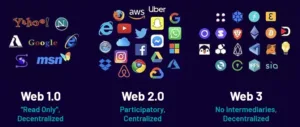Crypto Currency

Crypto Currency is a decentralized digital asset that can be a mode of transaction worldwide through blockchain. Crypto is a revaluation of the internet and all the other millions of industries. It can be a revolution in human history. From the wearying realm of offensive celebrity promotions, the labels in cryptocurrencies, such as Blockchain, NFTs, Web 3.0, and Metaverse, are defined. Crypto Currencies have an effect on the whole Economy of the Global Village.
Crypto Currency As A Revolution
In the very near future, all countries around the world will widely accept crypto as legal tender, making it the currency of the future. El Salvador is the first country to permit Bitcoin as a legal tender in 2021. Nayib Bukele, the president of El Salvador thinks bitcoin will improve the economy and banking for Salvadorans just after many other countries passed bitcoin as a legal tender.
Furthermore, numerous universities worldwide have initiated blockchain degree programs to augment their understanding of cryptocurrency and blockchain technology. It will make the banking sector easier and more convenient in the world banking and transactions will be more transparent. It looks at the substantial impact of company-based virtual currencies like Facebook.
Crypto Currencies
Crypto currencies are digital currencies like Bitcoin, Ethereum, Solana, Doge coin, and all others. Digital currencies are the alternative way of payment using blockchains. These transactions are encrypted and decentralized. Bitcoin is the king of the crypto market. It plays a leading role for all the other currencies except Bitcoin.
In the crypto currency market, people refer to all the other currencies as altcoins. Bitcoin operates on a proof-of-work mechanism that allows for physical mining, unlike all currencies which may not be physically mineable. Some currencies follow virtual mining called proof of stake coins. These currencies are listed on decentralized exchanges like Coinbase, Binance, Kucoin, and many others.
All of these are exchanges where the selling and buying of cryptocurrencies occur. Prices of currencies are highly volatile, so there is also a risk factor. It’s the best way to double your savings in a short period of time.
NFT’S
Non-fungible tokens gained a massive boom of popularity in recent years as a new and innovative way of showing ownership of digital assets. Let me tell you what are NFT`s and their role in human life.

What are NFTs?
NFTs (Non-fungible tokens) are unique digital tokens. That use basically blockchain technology to base ownership. NFTs have significant values and they are indivisible and represent specific items and files. Unlike fungible cryptocurrencies such as Bitcoin and others. Which can be replaced on a one-to-one basis. Non-fungible tokens (NFTs) cannot be replaced on a one-to-one basis.
NFTs are typically built on blockchains like Binance Smart Chain, Ethereum, and others. NFT tokens contain metadata that provides information about the digital assets of the NFT they represent.
Web 3.0: A New Era of Internet Evolution
The internet has gone through a remarkable revolution over the past few years and now, a new phase of the internet started called web3.0.Often called the semantic web, web 3.0 is a groundbreaking concept of the way we interact with the digital era.
What is Web 3.0?
It is the next phase of the evolution of the internet. Web 3.0 attentions on producing an artificially intelligent, context-aware web that understands the meaning behind data, allowing for more personalized and efficient user experiences that add meaning and context to data.

Key Features of Web 3.0.
Semantic Data
It works as a key feature of Web 3.0. Semantic Data enhances the user experience by providing a brain to a computer to comprehend the data in a human manner. It facilitates smarter research, rapid decision-making, and data integration.
Decentralization
Web 3.0 catalyzed decentralized technologies like blockchain technology to minimize the reliance on central bodies and intermediaries. This promotes trust, security, and transparency in online transactions.
Artificial Intelligence (AI) and Machine Learning
Web 3.0 catalyzed artificial intelligence and machine learning algorithms to analyze large databases and provide valuable insights. This enables predictive analytics, real-time decision-making, and automation of tasks, contributing to more efficient and intelligent online experiences.

Metaverse
Metaverse is a digital universe where people can engage with each other and digital environments in real time, often using avatars or digital representations of themselves. Embrace entertainment, education, and commerce like never before. The metaverse awaits – step into the future today!”

Key Features of Metaverse include
- Virtual worlds
- User interaction
- Persistent and shared
- Interoperability
- Economy and commerce
- Entertainment and creativity
- Education and work
Future Of Crypto Overview
The crypto party, once characterized by its exuberant highs, has hit a sobering moment. With blockchain cruises, YouTube crypto raves, and Super Bowl commercials, the crypto market was on a wild ride. However, this euphoria has been dampened by significant market crashes, increased cases of alleged fraud, and regulatory crackdowns. Sam Bankman-Fried’s arrest at the U.S. government’s request reflects the increasing scrutiny faced by crypto industry figures.
What was once viewed as a financial revolution now seems distant. Twenty-five out of 45 of the world’s largest economies have either completely or partially banned cryptocurrencies. The promise of crypto to improve financial equality faces substantial challenges.
Nevertheless, crypto’s future might extend beyond finance to revolutionize the internet. The crypto movement emerged from the Cypherpunks, a group concerned about internet privacy in the 1990s. They aimed to create a peer-to-peer network not only for file sharing but also for financial transactions.
Cryptocurrencies, starting with Bitcoin in 2008, aimed to establish a secure and decentralized payment system free from central banks, corporations, and governments. The underlying blockchain technology facilitates trust without the need for centralized control.
Crypto’s appeal transcends finances, carrying political implications. It offers the possibility of conducting online transactions without government interference, reducing governments’ power to surveil the economy and control individuals’ lives. This vision has resonated with many.
Crypto’s adoption varies across regions, thriving where alternative financial systems are less reliable, as in places with hyperinflation. Transaction fees and the cost of moving funds in and out of crypto can make it more expensive than traditional financial methods.
To address these issues, Layer 2 solutions are being explored, although they have their limitations, particularly when handling frequent global transactions.
Crypto’s next phase might involve building something more significant than a mere financial system. Blockchain technology is envisioned as the foundation for Web3, an internet where individuals have control over their data and digital interactions. This democratized internet reduces the influence of tech companies.
Web3 aims to incentivize users to pay directly for services, minimizing reliance on advertising or behavioral data. It allows people to invest in the network’s growth.
This vision of the internet could be revolutionary, but it also raises concerns about privacy and security, given the open nature of blockchain data.
Despite current limitations and challenges, many in the crypto community are guided by ideology and the vision of a decentralized, open internet where anyone can create and contribute to applications. As technology evolves, today’s clunky and slow cryptosystems might transform into something more efficient and powerful in the future.
Crypto’s future may not solely revolve around finance but could be instrumental in shaping the next generation of the internet, emphasizing personal data control and the democratization of online services.



Precise and nicely discribed. Thanks for your knowledge to share
Thanx!